-
 bitcoin
bitcoin $87959.907984 USD
1.34% -
 ethereum
ethereum $2920.497338 USD
3.04% -
 tether
tether $0.999775 USD
0.00% -
 xrp
xrp $2.237324 USD
8.12% -
 bnb
bnb $860.243768 USD
0.90% -
 solana
solana $138.089498 USD
5.43% -
 usd-coin
usd-coin $0.999807 USD
0.01% -
 tron
tron $0.272801 USD
-1.53% -
 dogecoin
dogecoin $0.150904 USD
2.96% -
 cardano
cardano $0.421635 USD
1.97% -
 hyperliquid
hyperliquid $32.152445 USD
2.23% -
 bitcoin-cash
bitcoin-cash $533.301069 USD
-1.94% -
 chainlink
chainlink $12.953417 USD
2.68% -
 unus-sed-leo
unus-sed-leo $9.535951 USD
0.73% -
 zcash
zcash $521.483386 USD
-2.87%
How to read the double bottom pattern of MFI? Is the success rate of the double bottom pattern high?
The double bottom pattern in MFI signals a bullish reversal when the index breaks above the peak between two similar lows in the oversold territory.
May 22, 2025 at 06:36 pm
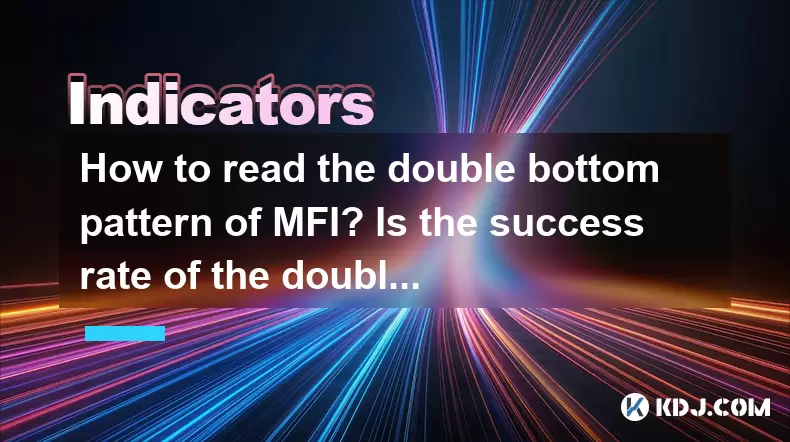
The Money Flow Index (MFI) is a popular technical indicator used by traders to gauge the strength of money flowing in and out of a cryptocurrency asset. One of the key patterns that traders often look for within the MFI is the double bottom pattern. This article will explore how to read the double bottom pattern of MFI and evaluate its success rate within the context of cryptocurrency trading.
Understanding the Money Flow Index (MFI)
Before diving into the double bottom pattern, it's crucial to have a solid understanding of the MFI itself. The MFI is a momentum indicator that combines price and volume to measure buying and selling pressure. It ranges from 0 to 100 and is typically considered overbought when it exceeds 80 and oversold when it falls below 20.
- To calculate the MFI, you first need to determine the typical price and the raw money flow for each period. The typical price is the average of the high, low, and closing prices. The raw money flow is the product of the typical price and the volume for the period.
- Next, you categorize the raw money flow as positive or negative based on whether the typical price is higher or lower than the previous period's typical price.
- Finally, the MFI is calculated using a formula that involves the positive and negative money flows over a specified period, typically 14 days.
Identifying the Double Bottom Pattern in MFI
The double bottom pattern in the MFI is a bullish reversal pattern that indicates a potential shift from a downtrend to an uptrend. It consists of two troughs at approximately the same level, separated by a peak.
- To identify a double bottom pattern in the MFI, start by looking for a period where the MFI falls into the oversold territory (below 20). This forms the first bottom.
- After the first bottom, the MFI should rise to form a peak, indicating a temporary recovery in buying pressure.
- The key to confirming a double bottom is the formation of a second bottom. This second bottom should be at a similar level to the first bottom, ideally within a few points.
- Once the second bottom is formed, watch for the MFI to break above the peak that separated the two bottoms. This breakout is a strong signal of a potential bullish reversal.
Reading the Double Bottom Pattern
Reading the double bottom pattern involves understanding the context and the specific movements within the MFI. Here are some steps to effectively read this pattern:
- Observe the oversold levels: The double bottom should occur when the MFI is in the oversold territory. This indicates that the asset has been heavily sold, and a reversal might be imminent.
- Monitor the peaks: The peak between the two bottoms is crucial. It should be a clear, distinct peak that shows a temporary increase in buying pressure.
- Confirm the second bottom: The second bottom should be at a similar level to the first bottom. This indicates that the selling pressure has reached a similar low point twice, suggesting exhaustion among sellers.
- Watch for the breakout: The most critical step is to watch for the MFI to break above the peak between the two bottoms. This breakout confirms the double bottom pattern and signals a potential bullish reversal.
Success Rate of the Double Bottom Pattern
The success rate of the double bottom pattern in MFI can vary depending on several factors, including the specific cryptocurrency, market conditions, and the timeframe used for analysis. However, there are some general observations that can help traders assess the reliability of this pattern.
- Historical data analysis: Studies and backtests on historical data can provide insights into the success rate of the double bottom pattern. In the cryptocurrency market, where volatility is high, the pattern may have a higher success rate during certain market conditions, such as bear market bottoms or consolidation phases.
- Market context: The success rate of the double bottom pattern can be influenced by the broader market context. For instance, if the overall market sentiment is bullish, the pattern may have a higher success rate compared to a bearish market.
- Confirmation signals: Using additional technical indicators or chart patterns to confirm the double bottom pattern can increase its success rate. For example, a bullish divergence in the Relative Strength Index (RSI) or a breakout above a key resistance level can provide additional confirmation of the pattern's validity.
Practical Examples of Double Bottom Patterns in MFI
To illustrate how to read and interpret the double bottom pattern in MFI, let's look at some practical examples from the cryptocurrency market.
- Example 1: Bitcoin (BTC): Suppose the MFI for Bitcoin drops to 18, forming the first bottom. It then rises to a peak of 45 before dropping back to 19, forming the second bottom. If the MFI then breaks above 45, this confirms the double bottom pattern and suggests a potential bullish reversal for Bitcoin.
- Example 2: Ethereum (ETH): In another scenario, the MFI for Ethereum falls to 15, rises to a peak of 38, and then drops back to 16. A subsequent break above 38 would confirm the double bottom pattern, indicating a potential bullish reversal for Ethereum.
Using the Double Bottom Pattern in Trading Strategies
Incorporating the double bottom pattern into trading strategies can enhance a trader's ability to identify potential entry points and manage risk. Here are some strategies to consider:
- Entry points: Use the breakout above the peak between the two bottoms as a signal to enter a long position. This breakout confirms the bullish reversal and can be a strong entry point.
- Stop-loss levels: Set a stop-loss order just below the second bottom to limit potential losses if the pattern fails.
- Target levels: Identify potential target levels based on previous resistance levels or Fibonacci retracement levels. These can help traders set realistic profit targets.
Frequently Asked Questions
Q: Can the double bottom pattern appear in other technical indicators besides MFI?A: Yes, the double bottom pattern can appear in other technical indicators such as the Relative Strength Index (RSI) and the price chart itself. However, the interpretation and confirmation signals may differ depending on the indicator used.
Q: How long does it typically take for a double bottom pattern to form in the MFI?A: The timeframe for a double bottom pattern to form can vary widely, depending on the specific cryptocurrency and market conditions. It can take anywhere from a few days to several weeks for the pattern to fully develop.
Q: Are there any specific cryptocurrencies where the double bottom pattern in MFI is more reliable?A: While the double bottom pattern can be observed across various cryptocurrencies, it may be more reliable in major cryptocurrencies like Bitcoin and Ethereum due to their higher liquidity and more extensive historical data.
Q: Can the double bottom pattern in MFI be used for short-term trading?A: Yes, the double bottom pattern can be used for short-term trading, especially when combined with other technical indicators and chart patterns. However, traders should be aware of the increased risk associated with shorter timeframes and adjust their strategies accordingly.
Disclaimer:info@kdj.com
The information provided is not trading advice. kdj.com does not assume any responsibility for any investments made based on the information provided in this article. Cryptocurrencies are highly volatile and it is highly recommended that you invest with caution after thorough research!
If you believe that the content used on this website infringes your copyright, please contact us immediately (info@kdj.com) and we will delete it promptly.
- Coinbase and Crypto ISAC Forge Alliance, Setting New Standards for Security Intelligence in the Digital Asset World
- 2026-01-31 04:35:01
- US Mint Honors Revolutionary War Hero Polly Cooper on 2026 Sacagawea Coin
- 2026-01-31 03:55:01
- Bitcoin Hits $83K Amidst Risk-Off Selling Frenzy, ETFs See Major Outflows
- 2026-01-31 04:35:01
- New 2026 Dollar Coin Shines a Light on Oneida Heroine Polly Cooper and America's First Allies
- 2026-01-31 04:15:01
- Polly Cooper, Oneida Woman, Honored on 2026 U.S. $1 Coin for Revolutionary War Heroism
- 2026-01-31 04:25:01
- Oneida Heroine Polly Cooper Immortalized on New $1 Coin: A Long-Overdue Tribute to Revolutionary Generosity
- 2026-01-31 04:25:01
Related knowledge
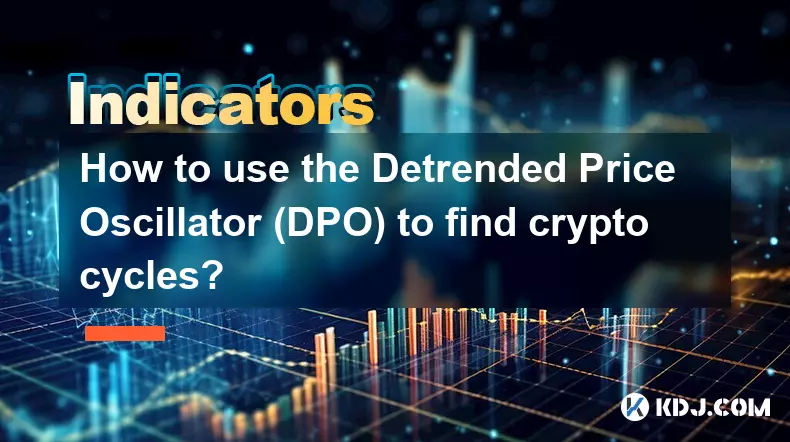
How to use the Detrended Price Oscillator (DPO) to find crypto cycles?
Jan 22,2026 at 02:59am
Understanding the Detrended Price Oscillator1. The Detrended Price Oscillator removes long-term price trends to highlight shorter-term cycles in crypt...
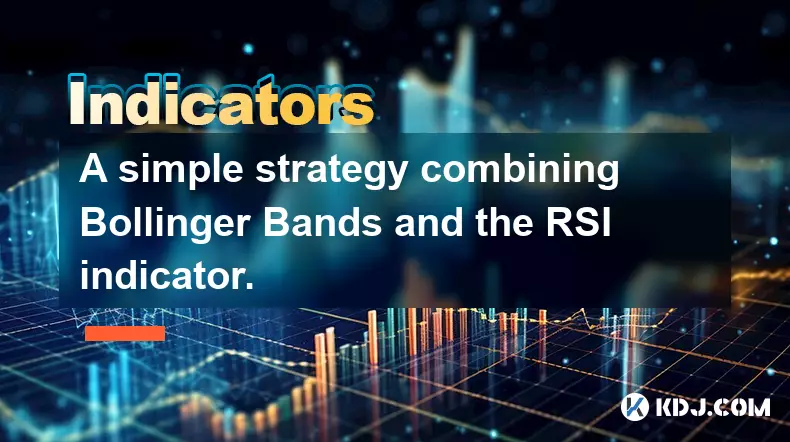
A simple strategy combining Bollinger Bands and the RSI indicator.
Jan 25,2026 at 12:39pm
Bollinger Bands Fundamentals1. Bollinger Bands consist of a middle band, typically a 20-period simple moving average, and two outer bands placed two s...
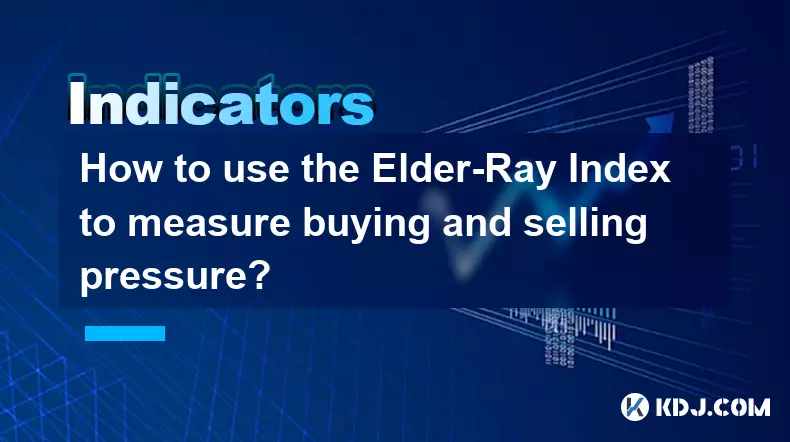
How to use the Elder-Ray Index to measure buying and selling pressure?
Jan 25,2026 at 11:59pm
Understanding the Elder-Ray Index Components1. The Elder-Ray Index consists of two distinct lines: Bull Power and Bear Power, both derived from the di...
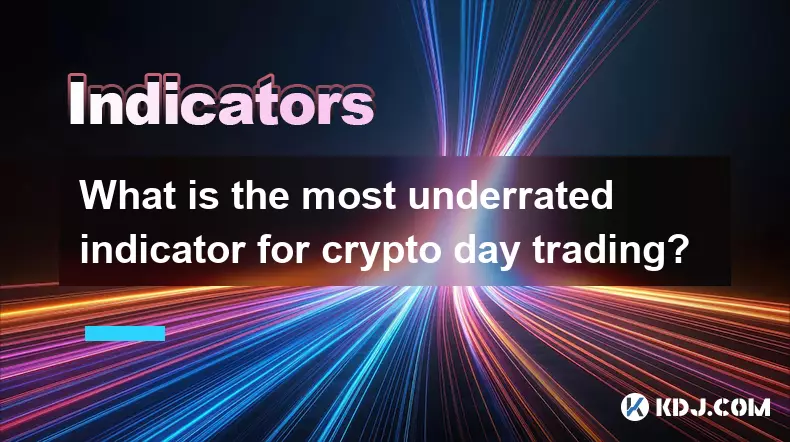
What is the most underrated indicator for crypto day trading?
Jan 19,2026 at 03:40am
Volume Profile Analysis1. Volume Profile maps trading activity across price levels rather than time, revealing where the majority of buying and sellin...
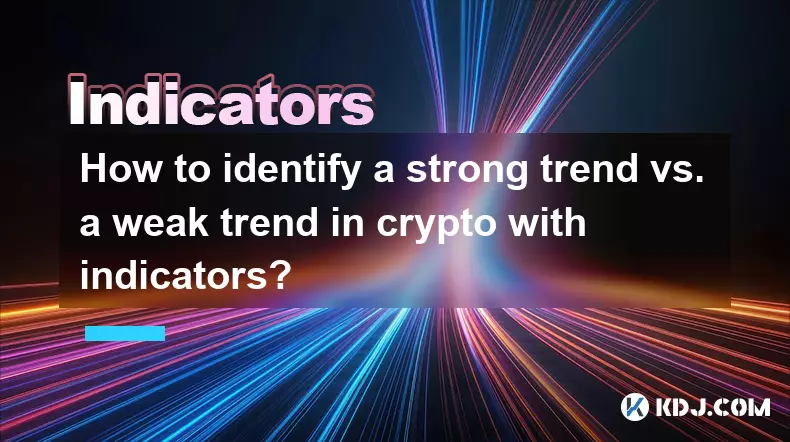
How to identify a strong trend vs. a weak trend in crypto with indicators?
Jan 18,2026 at 10:00pm
Understanding Trend Strength Through Moving Averages1. A strong trend often shows price consistently trading above the 200-day moving average in an up...
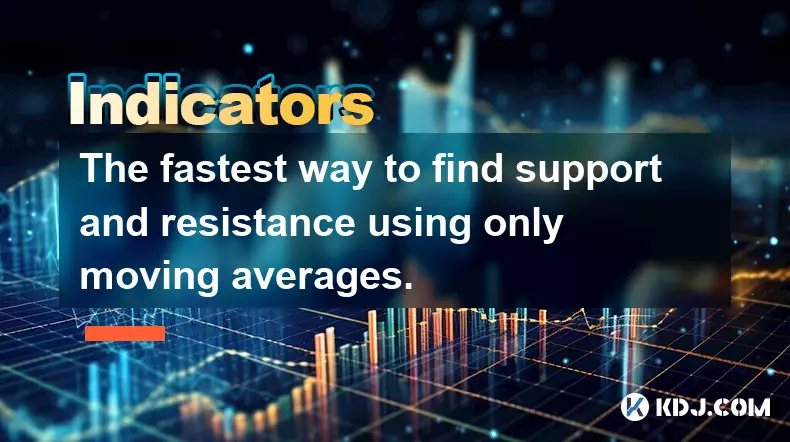
The fastest way to find support and resistance using only moving averages.
Jan 24,2026 at 11:20pm
Identifying Dynamic Support and Resistance Zones1. Traders in the cryptocurrency market frequently rely on moving averages to locate areas where price...

How to use the Detrended Price Oscillator (DPO) to find crypto cycles?
Jan 22,2026 at 02:59am
Understanding the Detrended Price Oscillator1. The Detrended Price Oscillator removes long-term price trends to highlight shorter-term cycles in crypt...

A simple strategy combining Bollinger Bands and the RSI indicator.
Jan 25,2026 at 12:39pm
Bollinger Bands Fundamentals1. Bollinger Bands consist of a middle band, typically a 20-period simple moving average, and two outer bands placed two s...

How to use the Elder-Ray Index to measure buying and selling pressure?
Jan 25,2026 at 11:59pm
Understanding the Elder-Ray Index Components1. The Elder-Ray Index consists of two distinct lines: Bull Power and Bear Power, both derived from the di...

What is the most underrated indicator for crypto day trading?
Jan 19,2026 at 03:40am
Volume Profile Analysis1. Volume Profile maps trading activity across price levels rather than time, revealing where the majority of buying and sellin...

How to identify a strong trend vs. a weak trend in crypto with indicators?
Jan 18,2026 at 10:00pm
Understanding Trend Strength Through Moving Averages1. A strong trend often shows price consistently trading above the 200-day moving average in an up...

The fastest way to find support and resistance using only moving averages.
Jan 24,2026 at 11:20pm
Identifying Dynamic Support and Resistance Zones1. Traders in the cryptocurrency market frequently rely on moving averages to locate areas where price...
See all articles










































































